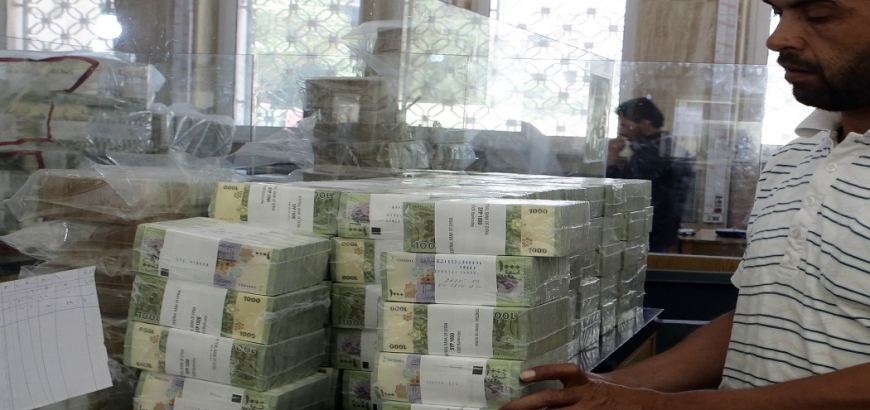Bank transfers in regime controlled areas have become dependant on the justification given by the customer and the decision of the bank employee. The matter could escalate to the customer being subjected to questioning.
This measure, which imposes restrictions on receiving and sending transfers, comes at a time when many Syrians depend on the transfers sent to them by their children abroad.
On Monday, the Assad regime’s ‘Combating Money Laundering and Terrorism Financing Commission’ said in statements, carried by the pro-Assad Al-Watan newspaper, that companies and banks would ask citizens to justify the sending of money, adding that if the justification is real and the volume of the transfer accords with this justification, there will be no restrictions.
However when transfers are received on behalf of the actual beneficiary without a convincing justification or when the number of transfers sent and their amount do not accord with the justifications for sending, then the transfer will be subject to inspection and the customer questioned.
The Commission justified these measures by saying that they were to “protect the financial system from activities which could bear suspicion of a crime or could be tied to illegal activities.”
The Commission said that while this measure was in place there was “nothing prohibiting the receiving or sending of more than one transfer a month” if a convincing justification was offered. It said that it had not demanded that companies and exchange offices “prevent the sending and receiving of transfers if they exceed a certain threshold,” without specifying who was behind this measure.
Previously the pro-Assad Damascus Center for Research and Studies called for a reduction in prosecutions carried out by the regime for financial transfers abroad through Viber and WhatsApp from European countries of asylum.
The center said that these transfers provided a source of new income, which families could rely upon to confront harsh living burdens.
Syrian transfers which reach families from various parts of the world are a major source of foreign currency entering into Syria.
This article was translated and edited by The Syrian Observer. Responsibility for the information and views set out in this article lies entirely with the author.


